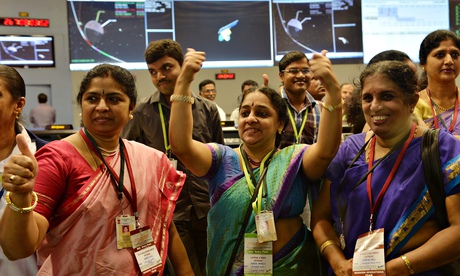As everybody knows, any criticism of demonetisation is both unpatriotic and anti-national.
As everybody knows, any criticism of demonetisation is both unpatriotic and anti-national. In any case, it has been a success — if you read the right newspaper editorial, watch the right television channel or listen to the bright folk from the country the U.K. magazine Private Eye calls Aslikhan.
There is a good reason economics isn’t an exact science. It tells us demonetisation is both an unmitigated disaster as well as a resounding success.
The demonetisers think it was the latter while it was the former for the demonetisees. The de-mon is in the details.
To fully understand the whole thing, here’s an analogy. Imagine India preparing to put a man on Mars. He-who-has-your-best-interests-at-heart then goes on national television to announce the three reasons for doing so: to prove that Mars is inhabited by Indians, to bring back all the gold stashed away there by people not sympathetic to his philosophy, and finally, to arrest all the fake Martians and throw them into jail on Jupiter.
Weeks later the objectives change. Now we are told that the mission is to bring back Matt Damon who has been left behind there by Hollywood.
“But that was a movie, all fiction,” cry the critics only to be told to shut up because, as everybody knows, critics are the ones who have stashed away the gold. To err is human, but to criticise is (see above) …
A few more weeks go by, and it is discovered there are no jails on Jupiter. With the flexibility that allows him to hide unseen behind a spiral staircase, the spokesman now tells us that the mission is a success, that we have achieved everything we set out to do and anybody who doesn’t believe that can go to Jupiter, our neighbouring planet.
A confused population (was it Mars or Matt? Is there gold on Jupiter? Can we tell a real Martian from a fake one?) continues to look for answers. Finally these arrive. In summary, we shouldn’t have gone to Mars, the objectives made no sense. We told you so.
“April Fool,” says the spokesman, “we were misquoted on live television. The following are the real reasons for going to Mars: to help India win the cricket series in Sri Lanka, to give the television channels something to fight about, and to give us a reason to return to earth. You can’t come back home without going away first. We have achieved all these targets. We are the greatest.”
One point two billion people suddenly remember their Keats: Was it a vision, or a waking dream? Fled is that November speech –Do I wake or sleep?
Did someone forcibly pull out from our pockets all those ₹1,000 currency notes? Were we told in various accents across the country that everything was being done for our own good, so shut up and queue up? Was this the face that launched a thousand slips? Perhaps the Mars trip is the real story and demonetisation the fictional one, who knows?

